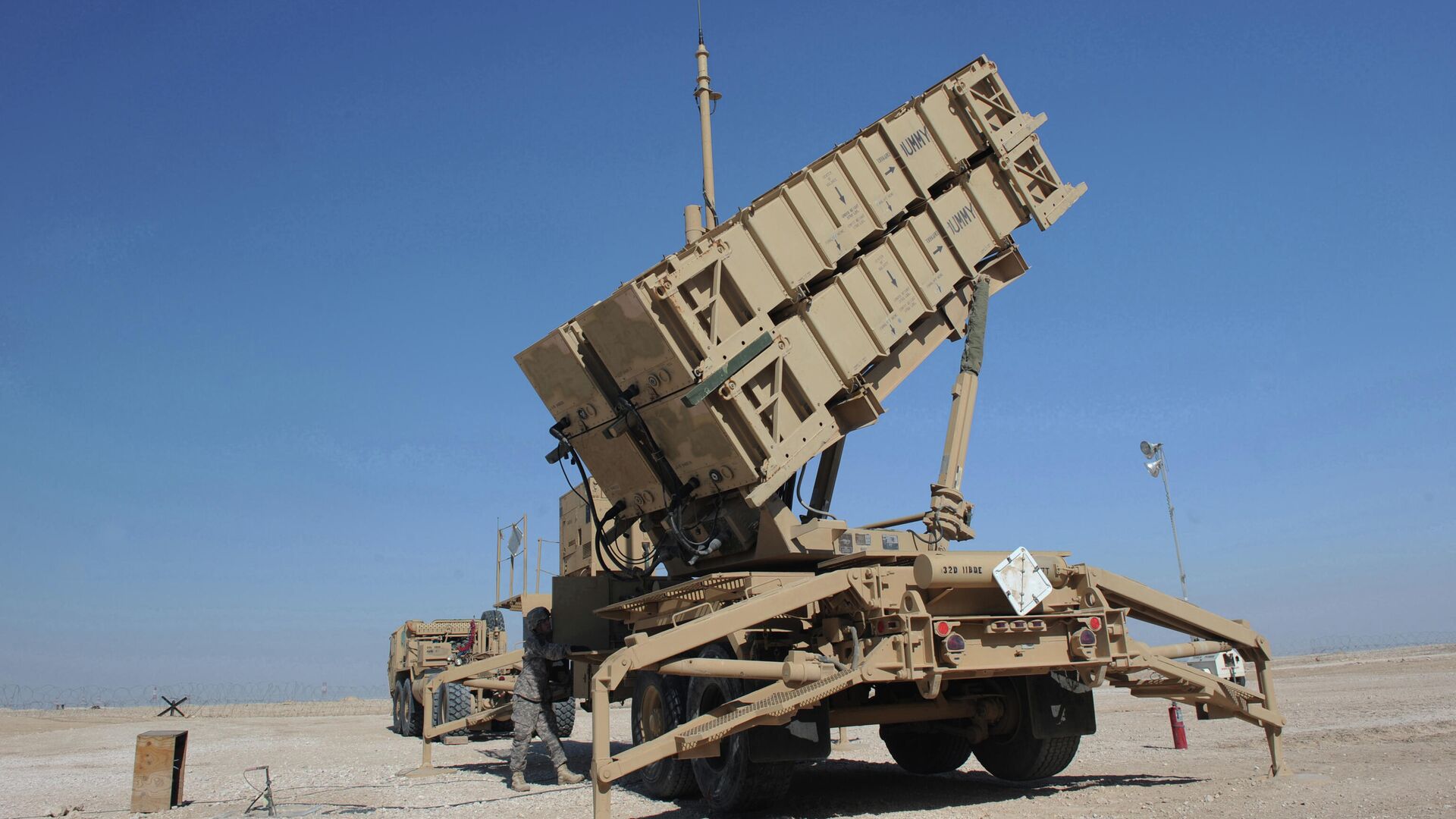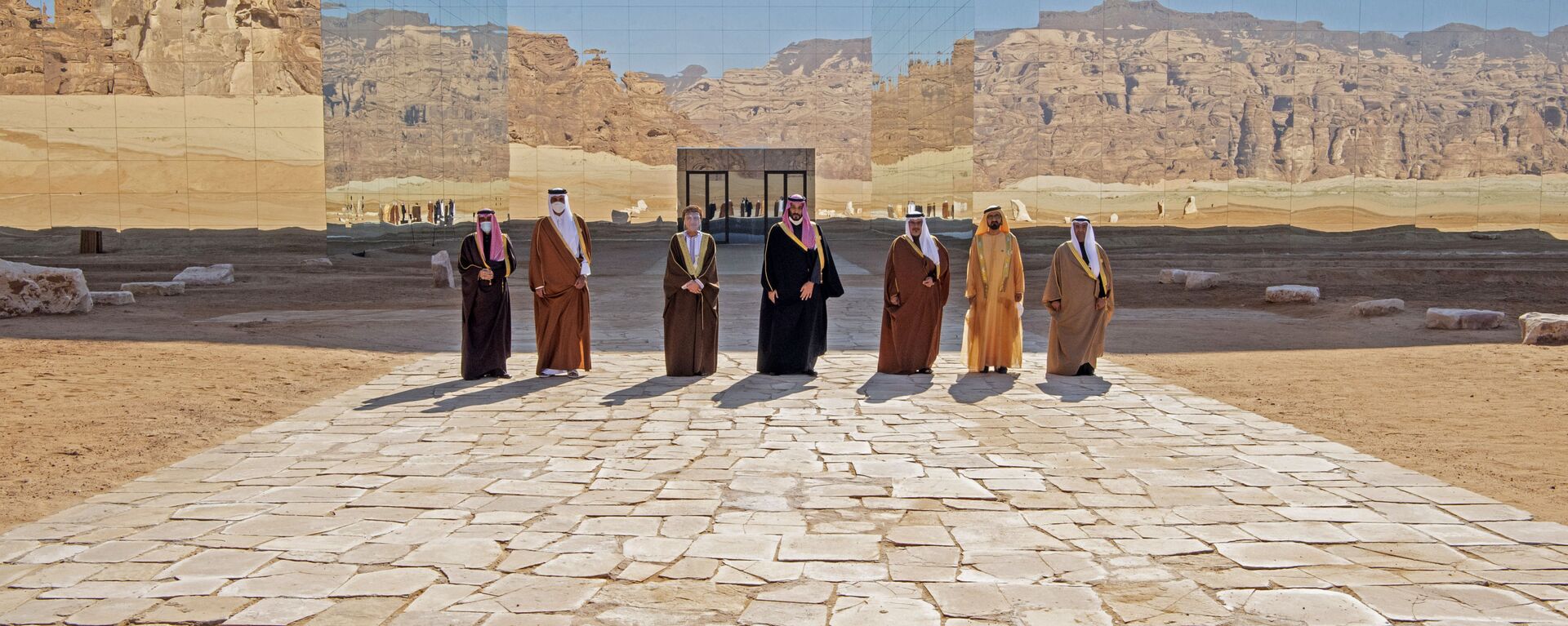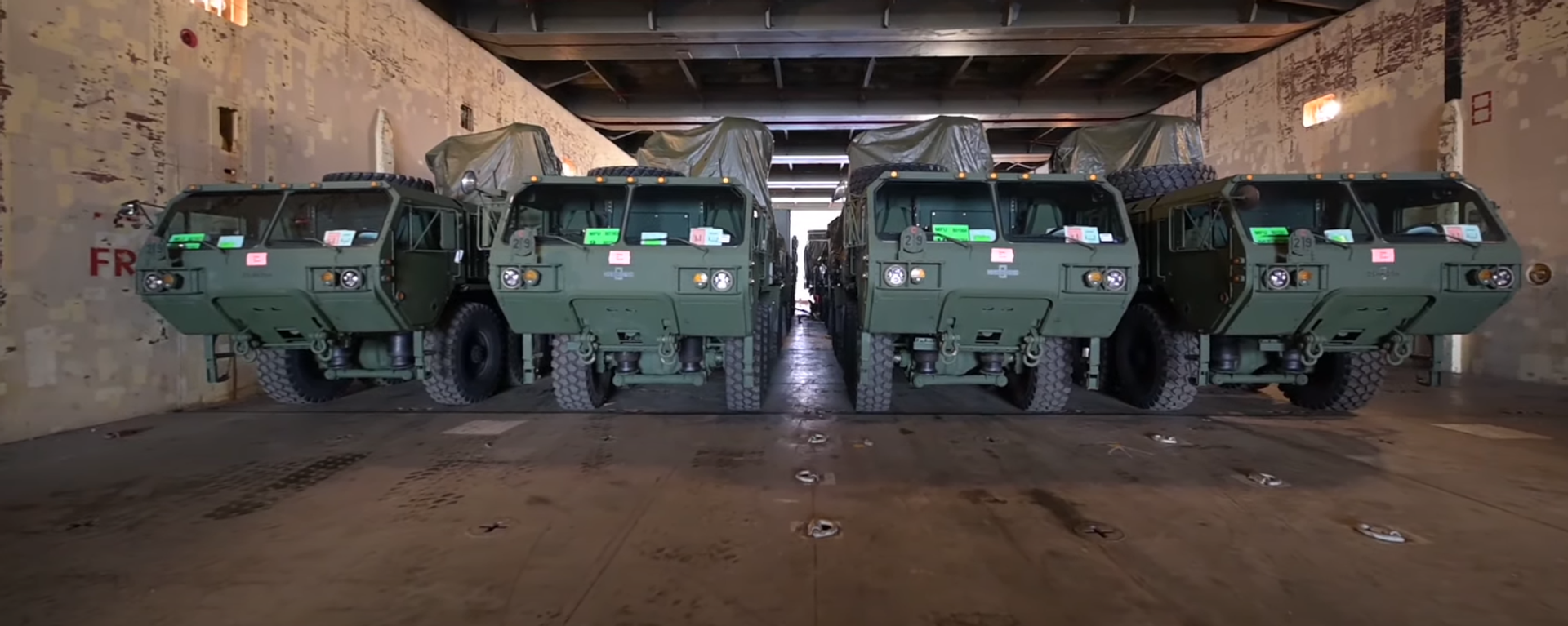https://sputnikglobe.com/20220626/us-organized-secret-talks-between-israel-saudis-on-anti-iranian-air-defense-coordination-report-1096682817.html
US Organized Secret Talks Between Israel, Saudis on Anti-Iranian Air Defense Coordination: Report
US Organized Secret Talks Between Israel, Saudis on Anti-Iranian Air Defense Coordination: Report
Sputnik International
Israeli Defense Minister Benny Gantz announced last week that Tel Aviv had been working on a US-backed “Middle East Air Defense Alliance” with Arab... 26.06.2022, Sputnik International
2022-06-26T19:10+0000
2022-06-26T19:10+0000
2023-01-15T17:26+0000
america
gulf arabs
saudi arabia
air defense
israel
https://cdn1.img.sputnikglobe.com/img/07e5/0c/09/1091366983_0:241:3077:1972_1920x0_80_0_0_23016c2e1d10496a01f82039f033ac7a.jpg
The United States organized a secret meeting in Sharm El Sheikh, Egypt in March between top Israeli and Arab military officials to discuss how regional countries could improve coordination between their air defenses against Iran’s ballistic missile and drone capabilities, the Wall Street Journal has reported, citing sources said to be familiar with the talks.The Arab officers involved reportedly included commanders from Egypt and Jordan (which have formal relations with Tel Aviv and even cooperate on air defense) as well as Saudi Arabia and Qatar (which do not). Officers from Bahrain and the United Arab Emirates, which normalized ties with Israel in 2020 in a deal brokered by the US, were also in on the meeting, according to WSJ’s sources.US Central Command chief Frank McKenzie was said to have been the senior US commander at the gathering, which was said to have achieved an ‘in principle agreement’ on procedures for notification via telephone or computer when aerial threats are detected. Non-binding commitments on which country’s air defenses may respond to aerial threats were also made, although the arrangements are yet to be codified by the respective states’ leaders.CENTCOM spokesman Joe Buccino refused to comment directly on whether or not the Sharm El Sheikh meeting took place, but described Iran as “the primary destabilizing factor across the Middle East,” and said that Central Command “maintains a firm commitment to increasing regional cooperation and integrating air and missile defense architecture to protect our force and our regional partners.”The reported March meeting was said to have been a follow-up to earlier secret negotiations at a lower-level by a working group, coordinated by now former CENTCOM chief planning officer Scott Benedict.President Biden is expected to have a chance to discuss opportunities to deepen and expand the air defense negotiations during his trip to Israel, the occupied West Bank and Saudi Arabia next month.Formalizing air defense ties may be difficult for regional giant Saudi Arabia unless ties are normalized first, officials from two Arab countries said. Riyadh has previously promised that it wouldn’t sign any peace deal with the Jewish State until the Palestinian issue was dealt with.The US already tracks the airspace across much of the Middle East from its Al Udeid Air Base foothold in Qatar. Saudi Arabia’s 22 US Patriot batteries, and planned acquisition of Terminal High Altitude Area Defense (THAAD), are expected to further improve prospects for cooperation. The UAE has its own THAAD system, while Israel has the Iron Dome and other domestically developed systems to target a broad range of aerial and drones threats.Asked to comment on the ‘Middle East Air Defense Alliance’ announced by Israeli Defense Minister Benny Gantz last week, WSJ’s sources said they hadn’t heard the proposed air defense being referred to using that name, and said Gantz appeared to have overstated how far discussions had progressed. “It’s still a work in progress. It’s a mechanism that’s being built. There are definitely partners who see it as too sensitive to talk about,” a senior Israeli official who spoke on condition of anonymity said.Only a handful of the Arab League’s 22 members have normalized relations with Israel. Alongside the aforementioned Egypt, Jordan, the UAE and Bahrain, these countries include Sudan and Morocco. Iran has accused these nations of “shamefully” selling out the Palestinian cause, and vowed to fight the “Zionists” until Israel collapses politically or militarily. Iran has made no secret of its readiness to share rocket and drone technology with regional allies to boost "regional stability and security."
https://sputnikglobe.com/20220626/neither-common-goal-nor-common-enemy-is-arab-nato-really-necessary-in-the-middle-east-1096661718.html
https://sputnikglobe.com/20220620/israel-creating-middle-east-air-defence-alliance-under-us-leadership-defence-minister-says-1096484058.html
saudi arabia
israel
Sputnik International
feedback@sputniknews.com
+74956456601
MIA „Rossiya Segodnya“
2022
News
en_EN
Sputnik International
feedback@sputniknews.com
+74956456601
MIA „Rossiya Segodnya“
Sputnik International
feedback@sputniknews.com
+74956456601
MIA „Rossiya Segodnya“
america, gulf arabs, saudi arabia, air defense, israel
america, gulf arabs, saudi arabia, air defense, israel
US Organized Secret Talks Between Israel, Saudis on Anti-Iranian Air Defense Coordination: Report
19:10 GMT 26.06.2022 (Updated: 17:26 GMT 15.01.2023) Israeli Defense Minister Benny Gantz announced last week that Tel Aviv had been working on a US-backed “Middle East Air Defense Alliance” with Arab governments, with the program said to be at an advanced stage and to have “already enabled the successful interception of Iranian attempts to attack Israel and other countries.”
The United States organized a secret meeting in Sharm El Sheikh, Egypt in March between top Israeli and Arab military officials to discuss how regional countries could improve coordination between their air defenses against Iran’s ballistic missile and drone capabilities, the Wall Street Journal has
reported, citing sources said to be familiar with the talks.
The Arab officers involved reportedly included commanders from Egypt and Jordan (which have formal relations with Tel Aviv and even cooperate on air defense) as well as Saudi Arabia and Qatar (which do not). Officers from Bahrain and the United Arab Emirates, which normalized ties with Israel in 2020 in a deal brokered by the US, were also in on the meeting, according to WSJ’s sources.
US Central Command chief Frank McKenzie was said to have been the senior US commander at the gathering, which was said to have achieved an ‘in principle agreement’ on procedures for notification via telephone or computer when aerial threats are detected. Non-binding commitments on which country’s air defenses may respond to aerial threats were also made, although the arrangements are yet to be codified by the respective states’ leaders.
Israel Defense Forces chief of staff Aviv Kochavi, Saudi armed forces chief of staff Fayyadh bin Hamed Al Ruwaili, and Qatari military chief Salem bin Hamad al-Nabit were said to have represented their respective countries at secret gathering. Commanders from Kuwait and Oman did not join the talks.
CENTCOM spokesman Joe Buccino refused to comment directly on whether or not the Sharm El Sheikh meeting took place, but described Iran as “the primary destabilizing factor across the Middle East,” and said that Central Command “maintains a firm commitment to increasing regional cooperation and integrating air and missile defense architecture to protect our force and our regional partners.”
The reported March meeting was said to have been a follow-up to earlier secret negotiations at a lower-level by a working group, coordinated by now former CENTCOM chief planning officer Scott Benedict.
President Biden is expected to have a chance to discuss opportunities to deepen and expand the air defense negotiations during his trip to Israel, the occupied West Bank and Saudi Arabia next month.
Formalizing air defense ties may be difficult for regional giant Saudi Arabia unless ties are normalized first, officials from two Arab countries said. Riyadh has previously promised that it wouldn’t sign any peace deal with the Jewish State until the Palestinian issue was dealt with.
The US already tracks the airspace across much of the Middle East from its Al Udeid Air Base foothold in Qatar. Saudi Arabia’s 22 US Patriot batteries, and planned acquisition of Terminal High Altitude Area Defense (THAAD), are expected to further improve prospects for cooperation. The UAE has its own THAAD system, while Israel has the Iron Dome and other domestically developed systems to target a broad range of aerial and drones threats.
Asked to comment on the ‘Middle East Air Defense Alliance’ announced by Israeli Defense Minister Benny Gantz last week, WSJ’s sources said they hadn’t heard the proposed air defense being referred to using that name, and said Gantz appeared to have overstated how far discussions had progressed. “It’s still a work in progress. It’s a mechanism that’s being built. There are definitely partners who see it as too sensitive to talk about,” a senior Israeli official who spoke on condition of anonymity said.
Only a handful of the Arab League’s 22 members have normalized relations with Israel. Alongside the aforementioned Egypt, Jordan, the UAE and Bahrain, these countries include Sudan and Morocco. Iran has accused these nations of “shamefully” selling out the Palestinian cause, and vowed to fight the “Zionists” until Israel collapses politically or militarily. Iran has made no secret of its
readiness to share rocket and drone technology with regional allies to boost "regional stability and security."



